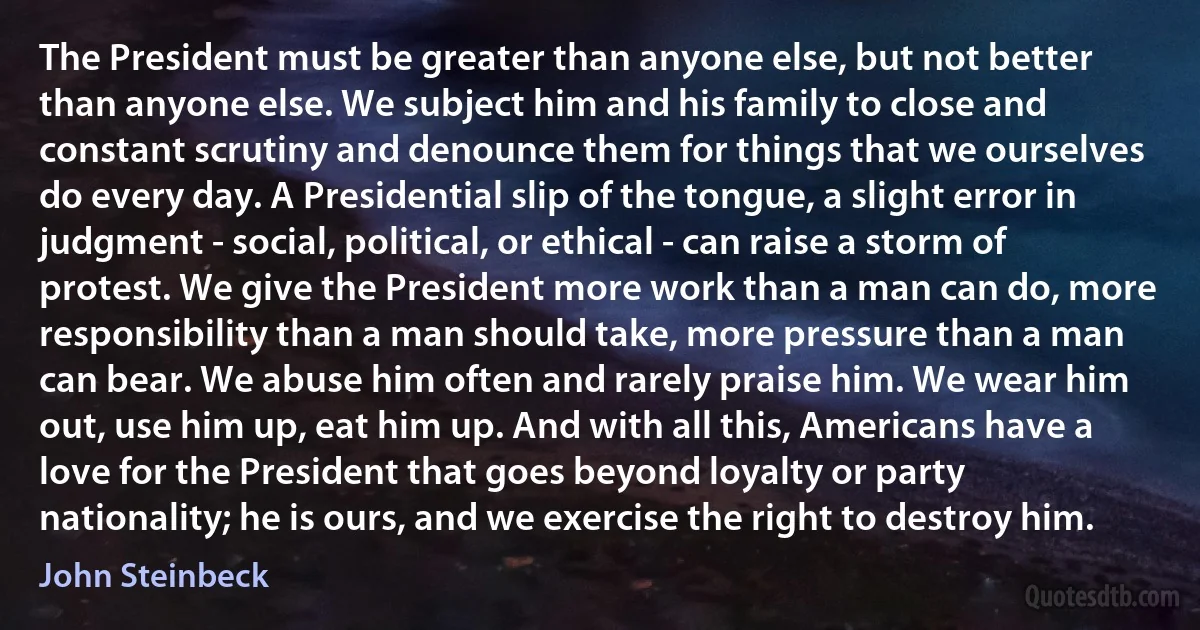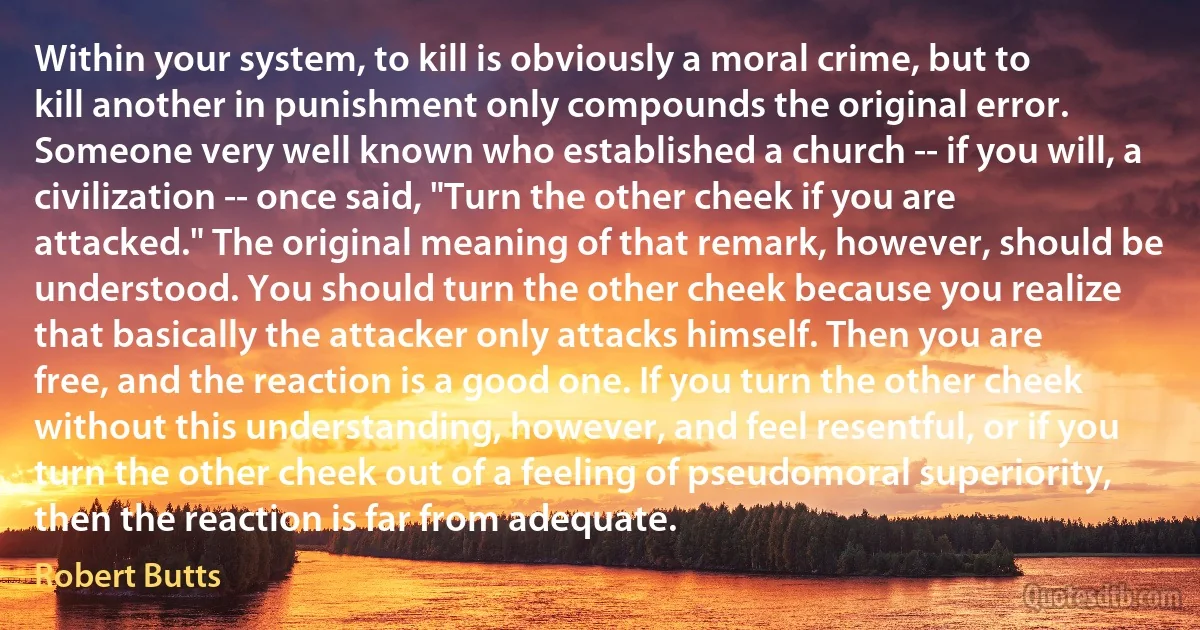Error Quotes - page 17
[Rock 'n' roll] really is not given to thinking - and resents thinking. Which I believe is the big error of rock 'n' roll. It's always aspired to be the music of the working class. And it's never been looked upon as a vocabulary for art and artistic thinking... We have to be able to expand the vocabulary to express more complex thoughts.

Paul Simon
I am angry at the custom of forbidding children to call their father by the name of father, and to enjoin them another, as more full of respect and reverence, as if nature had not sufficiently provided for our authority. We call Almighty God Father, and disdain to have our children call us so. I have reformed this error in my family.-[As did Henry IV. of France]-And 'tis also folly and injustice to deprive children, when grown up, of familiarity with their father, and to carry a scornful and austere countenance toward them, thinking by that to keep them in awe and obedience; for it is a very idle farce that, instead of producing the effect designed, renders fathers distasteful, and, which is worse, ridiculous to their own children.

Michel de Montaigne
The device [electronic I Ching calculator] also functioned as an ordinary calculator, but only to a limited degree. It could handle any calculation which returned an answer of anything up to 4. ...anything above 4 it represented merely as "A Suffusion of Yellow." Dirk was not certain if this was a programming error or an insight beyond his ability to fathom, but he was crazy about it anyway, enough to hand over twenty pounds of ready cash for the thing.

Douglas Adams
In like manner the Reverend Dr. William A. Smith, President of the Randolph-Macon College in Virginia, in his work upon the Philosophy and Practice of Slavery, deliberately repudiates Mr. Jefferson's view of slavery as a 'grossly offensive error', and attributes the anti-slavery movement to him – which is as wise as to attribute the motion of the earth to Galileo. Judge Wayne, in his late charge at Savannah upon the law against the slave-trade, confirms Mr. Stephens's statement. And, as if to establish it by the most unexpected testimony, Mr. Edward Everett, in his late discourse upon Daniel Webster, said, 'In common with all, or nearly all, the statesmen of the last generation, he believed that free labor would ultimately prevail throughout the continent'.

George William Curtis
It is almost as difficult to make a man unlearn his errors as his knowledge. Mal-information is more hopeless than non-information; for error is always more busy than ignorance. Ignorance is a blank sheet, on which we may write; but error is a scribbled one, on which we must first erase. Ignorance is contented to stand still with her back to the truth; but error is more presumptuous, and proceeds in the same direction. Ignorance has no light, but error follows a false one. The consequence is, that error, when she retraces her footsteps, has further to go, before she can arrive at the truth, than ignorance.

Charles Caleb Colton
If you reject absolutely any single sensation without stopping to discriminate with respect to that which awaits confirmation between matter of opinion and that which is already present, whether in sensation or in feelings or in any immediate perception of the mind, you will throw into confusion even the rest of your sensations by your groundless belief and so you will be rejecting the standard of truth altogether. If in your ideas based upon opinion you hastily affirm as true all that awaits confirmation as well as that which does not, you will not escape error, as you will be maintaining complete ambiguity whenever it is a case of judging between right and wrong opinion. (24)

Epicurus
It is they [men of science] who hold the secret of the mysterious property of the mind by which error ministers to truth, and truth slowly but irrevocably prevails. Theirs is the logic of discovery, the demonstration of the advance of knowledge and the development of ideas, which as the earthly wants and passions of men remain almost unchanged, are the charter of progress, and the vital spark in history.

John W. Campbell
The great error of the wisest known nations of antiquity, the Greeks and Romans, was the preference invariable given to the imagined interests of an imaginary existence called the state or country, and the real interests of the real existences, or human beings, upon whom, individually and collectively, their laws could alone operate. Another error was the opposition in which they invariably placed the interests of their own nation to the interests of all other nations; and a third and greater error, was the elevating into a virtue this selfish preference of their own national interests, under the name of patriotism. The moderns are growing a little wise on these matters, but they are still very ignorant.

Frances Wright
The circle of day and night is the law of the classical world: the most restricted but most demanding of the necessities of the world, the most inevitable but the simplest of the legislations of nature.
This was a law that excluded all dialectics and all reconciliation, consequently laying the foundations for the smooth unity of knowledge as well as the uncompromising division of tragic existence. It reigns on a world without darkness, which knows neither effusiveness nor the gentle charms of lyricism. All is waking or dreams, truth or error, the light of being or the nothingness of shadow.

Michel Foucault
It is difficult to pronounce on the opinion of the ministers of our Church as a body: one portion of them, by far the least informed, protests against anything which can advance the honour and the interests of science, because, in their limited and mistaken view, science is adverse to religion. This is not the place to argue that great question. It is sufficient to remark, that the best-informed and most enlightened men of all creeds and pursuits, agree that truth can never damage truth, and that every truth is allied indissolubly by chains more or less circuitous with all other truths; whilst error, at every step we make in its diffusion, becomes not only wider apart and more discordant from all truths, but has also the additional chance of destruction from all rival errors.

Charles Babbage

![The common error of us all [in late Impressionism] was to search above all for the light. It would have been better first to search for the Kingdom of God and his justice, that is to say for the expression of our spirit in beauty, and the rest would have arrived naturally. (Maurice Denis)](https://cdn.quotesdtb.com/img/quotes_images_webp/75/maurice-denis-above-beauty-279475.webp)

